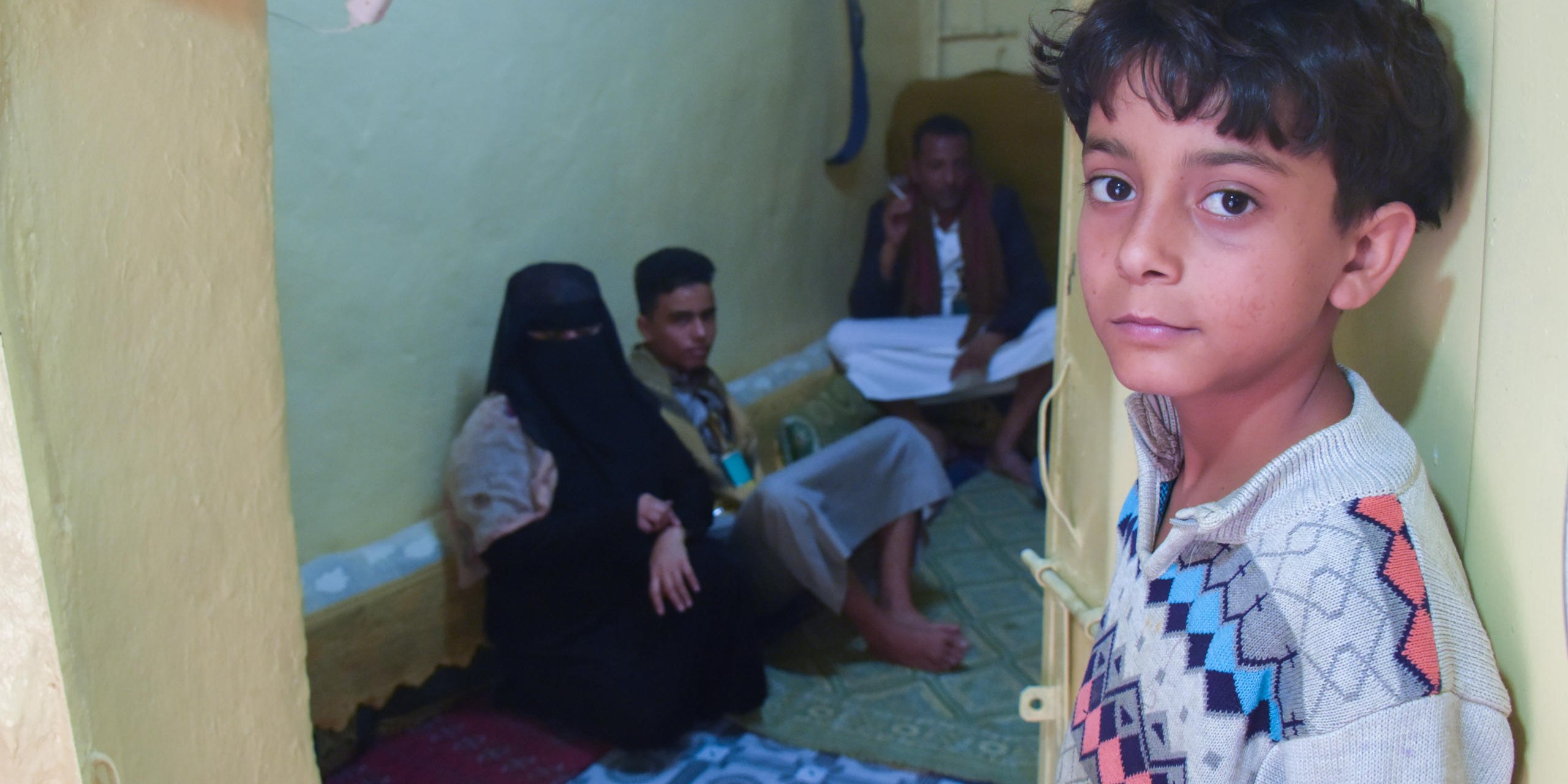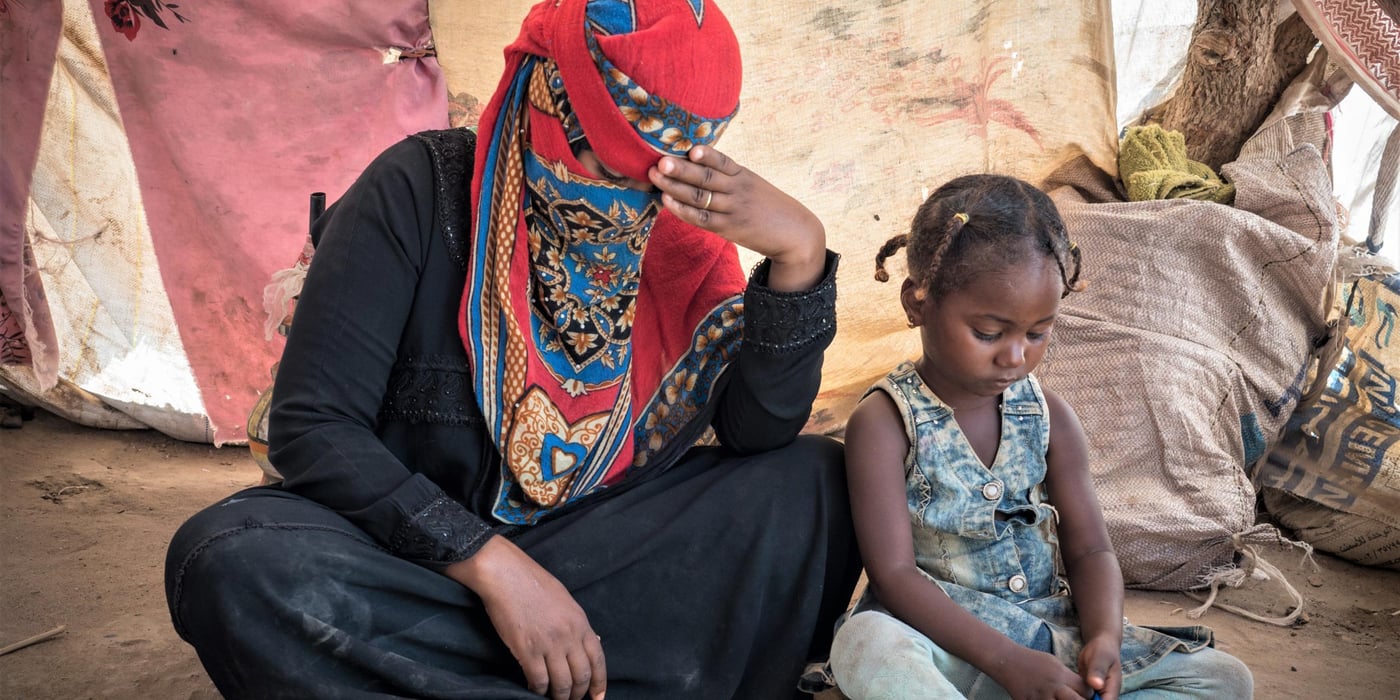
I städerna Hajjah och Taiz har antalet dödade civila mer än fördubblats sedan vapenvilan för den viktiga hamnstaden Hodeidah undertecknades i Stockholm strax före nyår. Det visar NRC:s analys av antalet civila angrepp under de senaste tre månaderna.
– Världens ögon har vilat på Hodeidah sedan vapenvilan ingicks, men i andra delar av landet är det rena blodbadet. Kriget fortsätter att eskalera i Jemen med dödliga konsekvenser för civila jemeniter, säger Mohamed Abdi, NRC:s landsdirektör i Jemen.
788 personer har dödats sedan 18 december förra året, då avtalet om vapenvila undertecknades. Av dessa dödades 318 personer av bomber. Under samma period anfölls totalt 1631 bostäder, 385 gårdar, 47 lokala företag och 13 skolor i Jemen. Dessa angrepp gör en redan allvarlig humanitär situation ännu värre och bidrar till svält och att barn drivs ut ur skolan.
– Våldet i Hodeidah har minskat, men samtidigt har det ökat i andra delar av landet, säger Abdi.
– Det har varit färre flygangrepp över Hodeidah och vapenvilan har gjort det möjligt att återuppta en del av det dagliga livet där. Bland annat har några affärer och företag öppnats igen. Samtidigt har striderna i andra delar av landet intensifierats med förfärliga konsekvenser för kvinnor, män och barn, tillägger Abdi.´
Siffror från Civilian Impact Monitoring Project (CIMP) visar att luftangrepp ledde till de största civila skadorna under 2018 och åren dessförinnan. Men dessa attacker har nu halverats under de senaste tre månaderna. Däremot har antalet offer för landminor, krypskyttar och improviserade sprängämnen ökat.
– Kriget har pågått i fyra år och vi måste fortsatt be de stridande parterna att stoppa attackerna mot den civila befolkningen. Parterna i den här brutala konflikten måste nu säkra vapenvilan och Stockholmsavtalet. De måste också, tillsammans med FN:s säkerhetsråd och medlemsländerna, se till att alla Jemens hamnar åter öppnas, att de offentliga tjänsterna återupprättas och att landets ekonomi stabiliseras. Vi måste stoppa den här humanitära katastrofen, som människor själva har skapat, avslutar Abdi.


![Yasin Ismail has been working for NRC for five years and believes NRC is one of the best organisation to work for. Yasin started working for NRC as an Education Assistant and is now an Education Coordinator at NRC's Aden area office.
Yasin believes education is a critical component of the work NRC does, because of its great impact on people’s lives. He recognises it as a basic human right, important to the development of children and youth to fulfill their potential, and critical to breaking the inter-generational cycle of poverty.
The impact of the conflict in Yemen has been catastrophic. Schools have been destroyed or occupied by armed groups or displaced populations, which have deprived children in some areas from accessing school for more than four years.
Children in Yemen are struggling to cope with the violence they have faced during the conflict, and continue to face imminent danger as conflict carries on and exposes them to UXOs, mines and crossfire.
Yasin believes the security situation, which results in restricted access and unpredictable funding for education, are two of the main challenges in his job. He said that affected communities need access to aid but will sometimes have challenges accessing this due to long delays at checkpoints or challenges reaching distribution sites.
Yasin wants to help and support those affected by war in Yemen and believes that we can change the world with education. “[We should] Always follow our dreams and believe in ourselves. For every ending - there is a new beginning, for every memory - there is a dream ahead.”
"I hope for peace and stability for our people and country. I hope for our children and youth to get quality education because that will help them to build their future. I believe the education is the only approach to protect future generations, because it gives people a chance for healthy development, restores a sense of normality, and provides important life skills. Further to that, an education intervention is an investment in the long-term future, and in the peace, stability and economic growth of Yemen”.
More information:
These kids, like many others, leave for school very early because it takes them an hour or as long as two hours for some to walk. Ensuring children have sufficient access to nutrition is very important for children expending huge amounts of energy on commuting, learning and playing, and ensures they are able to engage appropriately in class. Lialy was among the children without anything to eat before coming to school. NRC has started to provide high energy biscuits to children in Lialy's school, who expressed their happiness at receiving the biscuits. Several children mentioned feeling more energetic and active as a result, and said they could concentrate more in class.
Information about the school:
Al-Qadisia school is located in Al-Qubbiyta district in Lahj and was one of the first schools in which NRC has delivered programmes. NRC's team describe the AlQadisia as a normal school with an engaged community but experiencing problems including nearby landmines. As displaced families continue to move into the area, the number of students at the school continues to grow, creating overcrowding. NRC's programme is supporting rehabilitation of the school building, distribution of recreational, cleaning and scholastic materials, training of teachers and provision of high energy biscuits for students.
Education in Hard to Reach Areas:
One of NRC’s global priorities is to deliver aid and services to people in hard to reach areas. We worked with the Education Department to select this school and others identified as being among the most in need. In travelling to the school form NRC's office in Aden, staff encounter several checkpoints, threatened areas and landmines.
Our programming in Yemen's southern governorates reaches people in Lahj, Abyan and Al-Dalea, among other areas. Operating in these areas is complicated and challenging: our staff travel through checkpoints, some of which create traffic, preventing access to project sites. Several areas remain affected or threatened by conflict, explosions are often heard, landmines dot areas across Yemen and bureaucratic challenges delay or complicate processes.
Where mines explode, civilians can suffer on multiple levels as people cannot only sustain injuries, but lose mobility and access to fields and other sites used for cultivation.
Efforts should be made to call on the authorities and specialised organisations to strengthen demining operations and reduce the number of civilian casualties.
Photo: Ingrid Prestetun/NRC](/cdn-cgi/image/width=1400,format=auto,fit=crop,height=700/globalassets/sverige/yemen-31.jpg)

